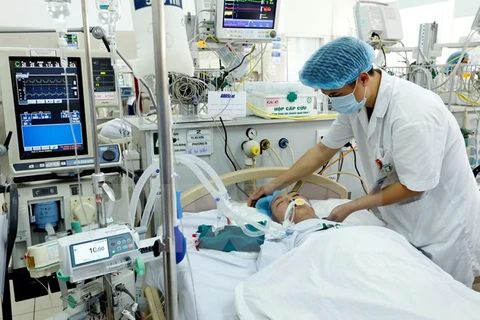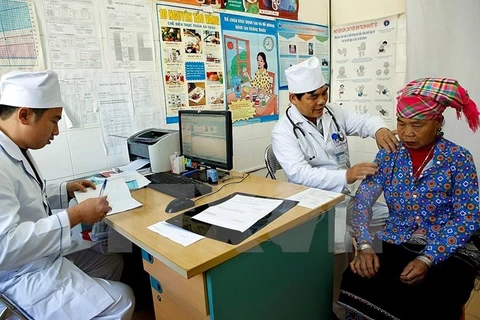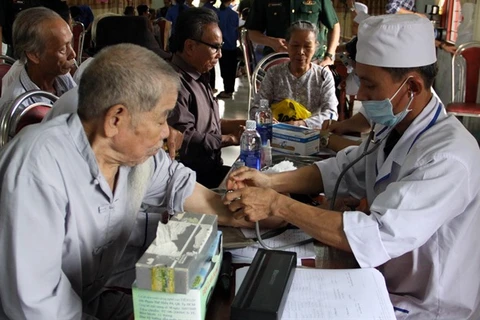Hanoi (VNS/VNA) - Vietnam is one of the few countries with a complete healthcare network which had been widely expanded to villages to provide primary treatment to local people, Deputy Minister of Health Do Xuan Tuyen has said.
The model had gained interest from many countries around the world, he said.
The grassroots healthcare network in Vietnam had 1,400 hospitals, 180,000 beds and more than 11,800 clinics.
The training and development of human resources for grassroots clinics had also gained attention, with most having a doctor, obstetrician or midwife.
In 2019, the health sector launched a training course to transfer technology and improve the professional capacity of health workers.
As part of the course, doctors and nurses from central hospitals in Hanoi and HCM City are being rotated to support their colleagues at grassroots clinics. Young doctors have been sent to work in mountainous and rural areas under the ministry’s pilot Project 585 since 2013.
Under the project, 354 young doctors in the fields of obstetrics, paediatrics, imaging diagnosis, anesthesia, emergency resuscitation, infectiousness and traditional medicine have been trained. Of them, 151 have volunteered to work in 51 poor districts around the country and 195 are still completing their training before moving to assigned areas.
Tuyen said the ministry’s efforts to provide healthcare had contributed to improving the quality of medical examinations and treatment at a grassroots level, and people had easy access to local medical services.
In particular, the grassroots healthcare system had contributed in the fight against the COVID-19 pandemic thanks to the infectious disease supervision system, which had stopped the spread of the disease in the community.
The ministry has been piloting family medical plans at 26 clinics in eight provinces and cities, while medical technology is being constantly updated and transferred from central to local levels.
Notably, care workers have made much progress after five years of reform.
The 2019 Provincial Governance and Public Administration Performance Index (PAPI) showed that the citizen’s satisfaction index on public healthcare had increased from 1.92 in 2017 to 1.96 in 2018.
Only 0.4 percent of patients in district public hospitals reported they had to bribe medical staff to get better care. That figure in 2017 stood at 9 percent.
The inpatient satisfaction index in 2018 reached 80.6 percent, backed up by a survey conducted by Oxfam Vietnam.
To further improve the quality and efficiency of grassroots healthcare services, Tuyen said the ministry had launched a five-year project to upgrade the system in 13 cities and provinces.
The project has a total investment capital of more than 126 million USD. Of that, 80 million USD is from the World Bank, 25 million USD is from non-refundable aid and the rest is from the Government.
Under the project, 138 clinics will be built and 337 clinics will be upgraded and provided with medical equipment. Health workers will be trained before working in these clinics.
Acting Minister of Health Nguyen Thanh Long said the ministry focuses on grassroots healthcare in order to serve the people in a timely manner.
“The ministry will connect provincial, district and commune health clinics with remote medical examinations and treatment. A doctor at a central hospital will support at least four health workers in provincial facilities, four health workers in district facilities and two health workers in communal clinics,” he said.
The ministry also planned to launch a remote medical examination and treatment project connecting 1,000 medical facilities to help people access the best healthcare services, he said./.
VNA
























